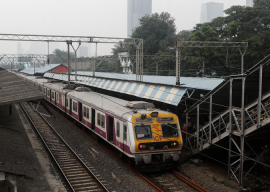
The Privatisation Commission (PC) board on Wednesday allowed the hiring of financial advisers before making decision on either privatising power distribution companies or handing over their management control to the private sector.
The decision to engage financial advisers for conducting legal and regulatory reviews suggests that the Pakistan Tehreek-e-Insaf (PTI) government would not be in a position to sign even management contracts for these loss-making enterprises at least for one more year.
After detailed deliberations and discussion on the proposals prepared and presented by the working group on distribution companies, it was decided that the proposed plan would be placed before the upcoming meeting of the Cabinet Committee on Privatisation (CCOP) for consideration and necessary action, said the Ministry of Privatisation after the meeting.
An official statement said that the board was briefed on the plans and options for private sector participation regarding distribution companies in light of the decisions and directives of the CCOP meeting held on March 18, 2021.
The PTI government began its tenure with the slogan of restructuring the power sector companies. After wasting a year, it decided to privatise the power distribution and generation companies.
Lately, the government came up with the idea of outsourcing the loss-making power distribution companies’ management control to the private sector.
In its last meeting, the CCOP grilled the Ministry of Privatisation bureaucracy for not making any progress on the decision of handing over the management control.
The working group had recommended the PC board to give management control of Quetta Electricity Supply Company (Qesco) and Tribal Areas Electricity Supply Company (Tesco).
However, the board was of the view that there was a need to conduct legal and regulatory analysis before deciding whether the 10 power distribution companies should be privatised under the concession agreement or their management should be privatised.
In case of Pakistan Steel Mills (PSM), the government has already ruled out the concession agreement, terming it a complex model.
Once approved by the CCOP, it would take at least three to four months to hire a financial adviser. The adviser would then take another four to six months to complete the due diligence process before he puts recommendations for consideration of the government.
Federal Minister for Privatisation Mohammad Mian Soomro said that the purpose of private sector participation in distribution companies was to resolve power supply issues and make services of distribution companies competitive and better.
The Task Force on Energy Reforms had also proposed the initiation of privatisation of Islamabad Electric Supply Company (Iesco) and Peshawar Electric Supply Company (Pesco), after addressing the issues of monopoly rights, uniform tariffs, subsidy to the poor and buyer rights regarding personnel termination.
Then in April last year, the Cabinet Committee on Energy directed the PC to expedite action for the privatisation of Iesco and Pesco.
There was no progress and all these decisions remained pending amid a surge in losses of the power distribution companies and reduction in their recoveries.
The circular debt that was less than Rs1.150 trillion before the PTI came to power, has already surged to Rs2.4 trillion, according to the Power Division summaries presented to different cabinet bodies.
The federal cabinet last week approved a three-year Circular Debt Management Plan, which passes the cost of inefficiencies and theft to the consumers that are already paying their dues. As per the plan, the government has approved increasing the electricity prices six times from April through October by Rs5.65 per unit or 36%. The government will also get a right to impose 10% surcharge on consumers over and above the Rs5.65 per unit increase, showed the plan.
The Power Division, which has failed to control the circular debt, is also not whole-heartedly supporting any privatisation plan.
In January, the Power Division told the privatisation ministry that it needed a detailed study to examine all the legal, technical and commercial aspects and then would be in a position firm up an opinion about handing over the management controls of the power sector.
The Power Division said that it lacked the requisite in-house expertise for coming up with well-considered views and legal and regulatory questions needed to be included in the terms of reference for a transaction adviser to be hired for privatisation of distribution companies.
Published in The Express Tribune, March 25th, 2021.
Like Business on Facebook, follow @TribuneBiz on Twitter to stay informed and join in the conversation.




1732259077-0/carti-(1)1732259077-0-165x106.webp)







1615032080-0/Mag-power-(1)1615032080-0-270x192.webp)








COMMENTS
Comments are moderated and generally will be posted if they are on-topic and not abusive.
For more information, please see our Comments FAQ